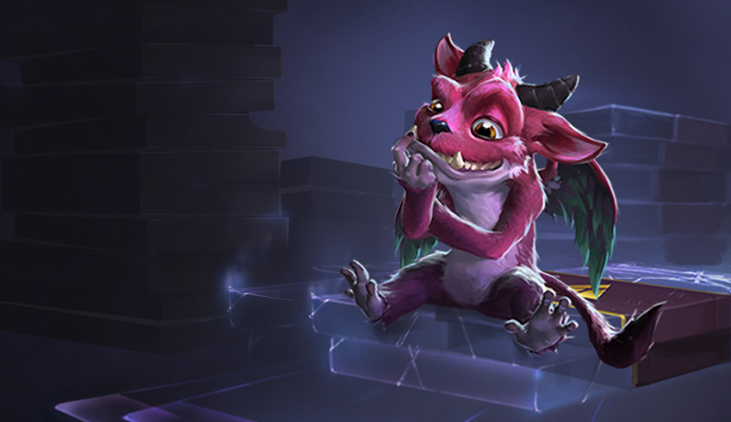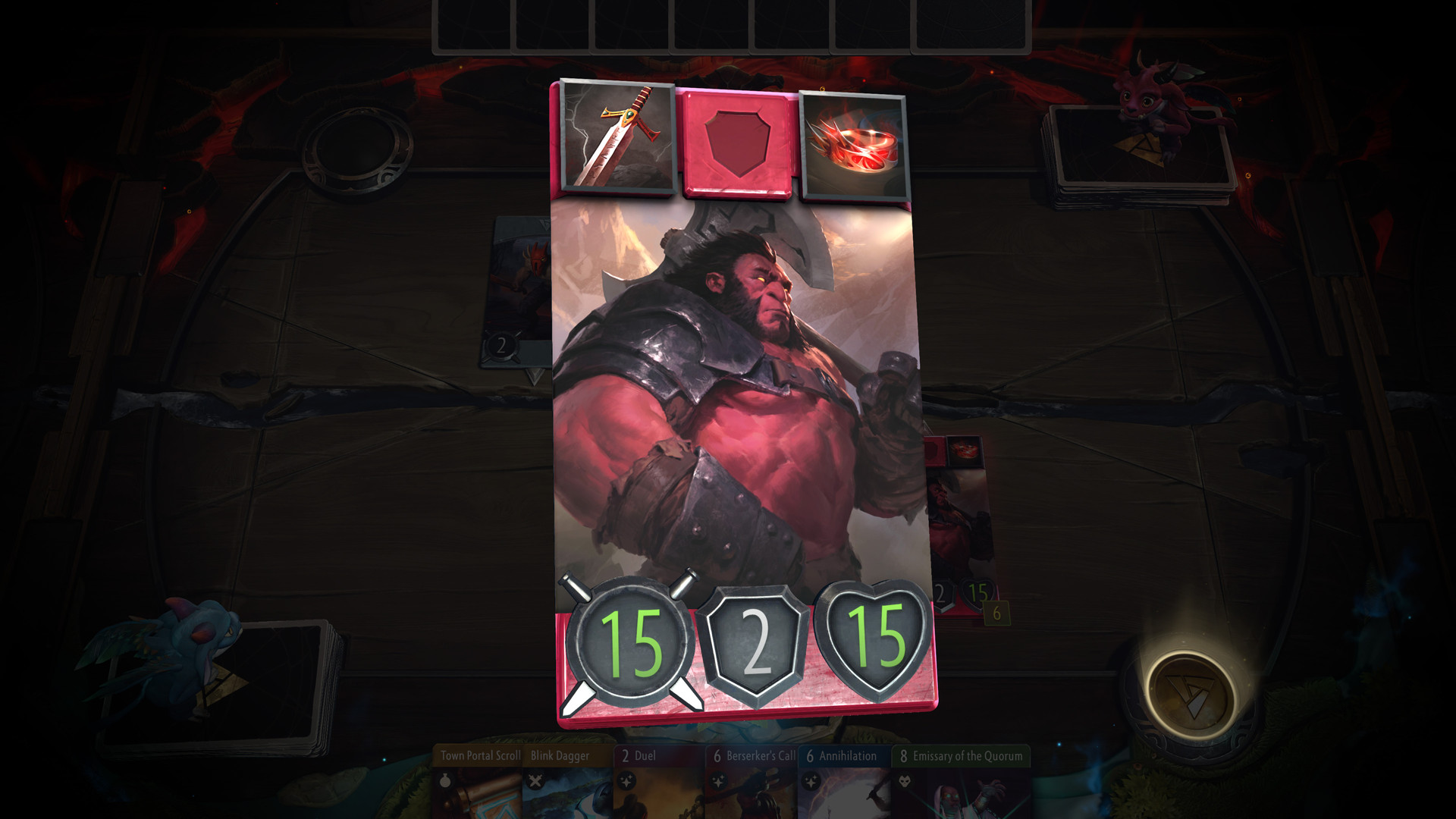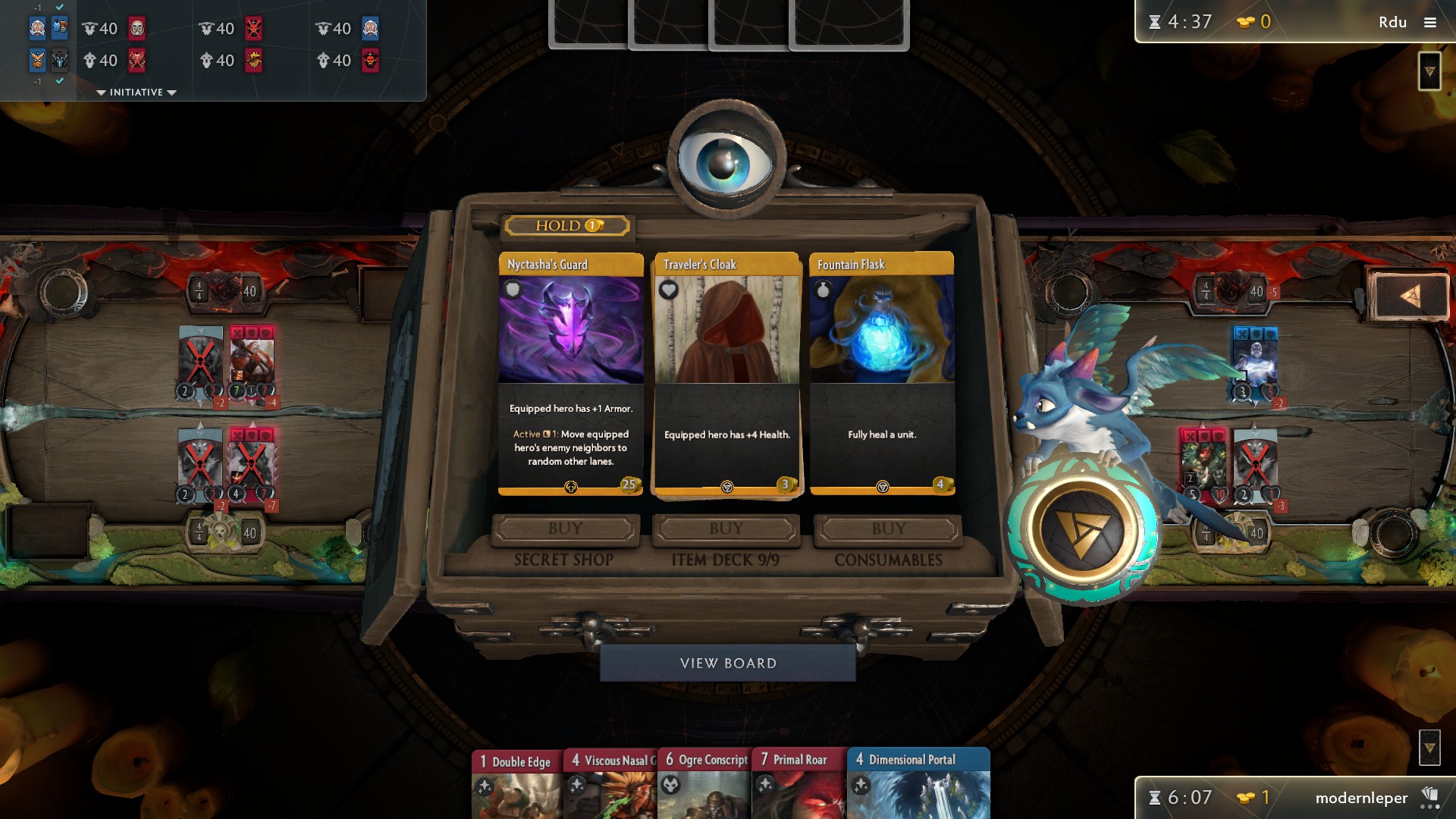Card game players and PC gamers may never agree on Artifact's pricing
Some say it's cheap to build competitive decks, others are aghast at the cost. It's all a matter of perspective.

Valve’s Dota-themed collectible card game Artifact has received both praise and criticism during its first days, and is currently sitting on ‘mixed’ review status on Steam. It is a clash of two worlds. Long-time card game players are enthusiastic about how ‘cheap’ it is to build a large card collection and competitive decks in Artifact compared to Magic and even Hearthstone, but players used to computer game pricing are appalled at the number of purchases needed after paying $20 for the game and the absence of even limited free progression.
This was predictable. We took an in-depth look at the cost of the game shortly before Artifact's release and the comments on that article closely mirror the reviews of the game: some people emphasizing how they can easily put together competitive decks and others absolutely aghast at the cost.
How you view Artifact's pricing depends on your perspective, then, and these early days may not be the best introduction for those who are new to collectible card games. The marketplace has been a volatile place in its first 48 hours—even more volatile than I expected—and there is more market speculation going on than in a typical new set release in Magic.

The main spotlight is on Axe, a powerful rare Red hero that was expected to become the most expensive card in the game, as Red is a popular color and Axe is a staple in every Red deck. When the market opened, Axe was fetching a Magic mythic rare price at $40—for a single card! The prices quickly began to fall and for almost a day, you could buy Axe for $14. However, this story has more chapters to it: prices began to rise again on Thursday and Axe hit a high of $28, doubling in value from its low point. This price again proved to be unsustainable, and it's currently at $21.
This changing market provides opportunities to make some money, or at least some Steam bucks, and indeed, even as I was writing this, someone posted a buy order for four copies of Axe on the Steam market—even though it is a Hero card that you can only ever use one copy of in your decks. It will take a while for the market to settle down, so keep that in mind if you’re interested in buying or selling cards.
What does it really cost to play Artifact right now? You can always play draft at no additional cost, but if you want to play constructed matches with your own decks, you need to have some cards. You get 10 packs with your initial purchase, and if you manage to pick up some good cards from those, all the better. If you don’t, you can buy the deck you want to play from the Steam market.

The price has been volatile over the first two days
The very first constructed tournament, WePlay! Artifact Mighty Triad: Strength, is currently underway, and the first groups have been played. In Group A, Strifecro took the win with a Blue/Green combo deck that costs $64, and Lifecoach came in second with a Red/Green ramp deck that costs $81. In Group B, Xixo won with a Red/Black Oath deck that costs $40, while StanCifka took the second place with his version of Red/Black that costs $53.
Keep up to date with the most important stories and the best deals, as picked by the PC Gamer team.
If you compare these deck prices to competitive Magic decks, you can see where the card game players are coming from. At Grand Prix Milwaukee, the cheapest deck in the top 10 was Jacob Tilk’s Mono-White Aggro, which costs $70 in Magic Online and $251 in physical form. The winner, Adrian Sullivan, played a Jeskai Control deck that costs $170 in Magic Online and $534 in paper. From this perspective, Artifact does not look expensive at all.
In fact, you can pick up all the cards in Artifact for the price of a single physical Magic deck. A full set of Artifact—one of each Hero and three copies of all other cards—currently costs $275 on the Steam market. The price has been volatile over the first two days, opening at $350 and going down to just $200 for a few moments before jumping back up to over $300, and then coming back down again. Our pre-release prediction of $200 to $300 for a full set still looks fine.
From the perspective of a computer gamer, however, Artifact looks very, very expensive. First you pay the price of a game and then you get to pay the price of two more games just to have a good deck? The market jumping up and down and people speculating on the prices does not improve the early impression of those who come to the game from outside the collectible card game world. That said, it is also unlikely that it matters much to them whether the price is $100, $200, or $300—all of them are expensive.
Valve chose evolution over revolution, and given the high expectations for Valve as a publisher, the disappointment from computer gamers is understandable. I come from a card game background, though, so maybe I’m just used to being robbed. I like Artifact for its contributions to the collectible card game genre, both in its design and the comparatively reasonable pricing. But I'm comparing it to Magic, and that narrative may not be the one that wins out with PC gamers. We'll keep an eye on the market fluctuations as we work toward our final review.

